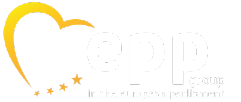Gaps in national legislation must be addressed to combat the rapid rise of deepfake technologies which are disproportionately impacting women and girls, MEP Maria Walsh has said.
MEP Maria Walsh has written to Minister for Justice Jim O’Callaghan to highlight the existing gaps in national legislation, as part of action taken for International Women’s Day, today March 8th. There was an estimated 245% increase in deepfakes last year, with approximately 96% of deepfakes being pornographic in nature and women accounting for 99% of victims.
MEP Maria Walsh, full member of the European Parliament’s Gender Equality Committee, said:
“Urgent action at EU and national level is needed to control the spread and impact of deepfakes. I have written to Minister Jim O’Callaghan to request the Department of Justice address the gap that currently exists whereby the creation of harmful deepfakes remains largely outside the scope of existing legislation.
“As we mark International Women’s Day today, we must recognise the new digital and cyber threats facing women in the 21st century. Deepfake images and videos are quick and easy to make, and have the potential to destroy a woman’s reputation, sense of safety and psychological wellbeing.
“While Ireland has led the way through the passing of Coco’s Law, which criminalises the distribution of intimate images without consent, much work remains to target the individuals who create harmful deepfakes. I believe there is a credible argument for new legislation that targets these creators, with penalties proportionate to the damage caused.
“Under current legislation, the sharing of deepfake intimate images of a person without their consent is covered because of the broad definition of an intimate image contained in Coco’s Law. However, the creation of an intimate deepfake is not in itself an offence under the legislation; it is the distribution, publishing or threatening to distribute or publish where the offence occurs. There is also no legislation that addresses the creation or dissemination of deepfakes in the general sense – such as seemingly innocent but synthetic images, which we have recently seen being created of politicians.
“As a member of the European Parliament’s Gender Equality Committee, I recently proposed an amendment calling for stronger detection and prevention measures from the EU to counter deepfakes, which was passed by the Committee. However, such efforts will only be fully effective if they are bolstered by decisive national action.
“I hope to see a strong commitment from Minister O’Callaghan to tackling this issue, a commitment backed up by tangible measures such as funding, legislation and public awareness campaigns.”

